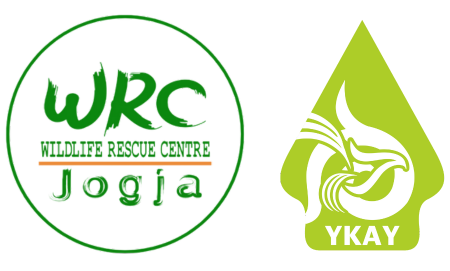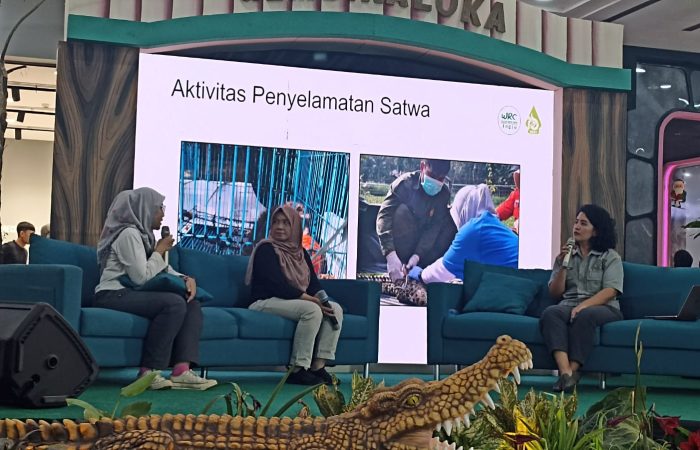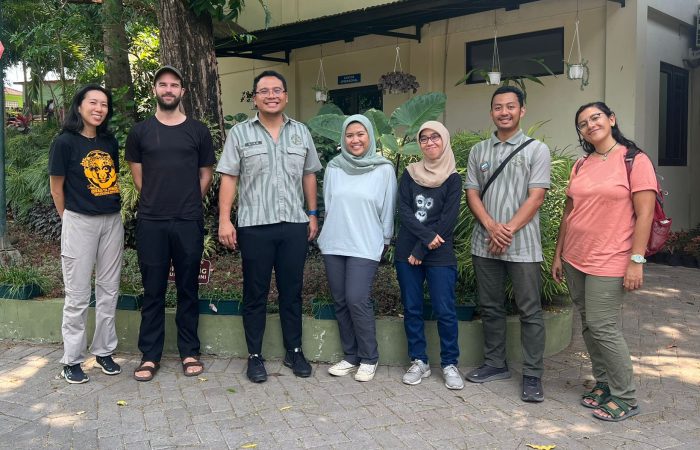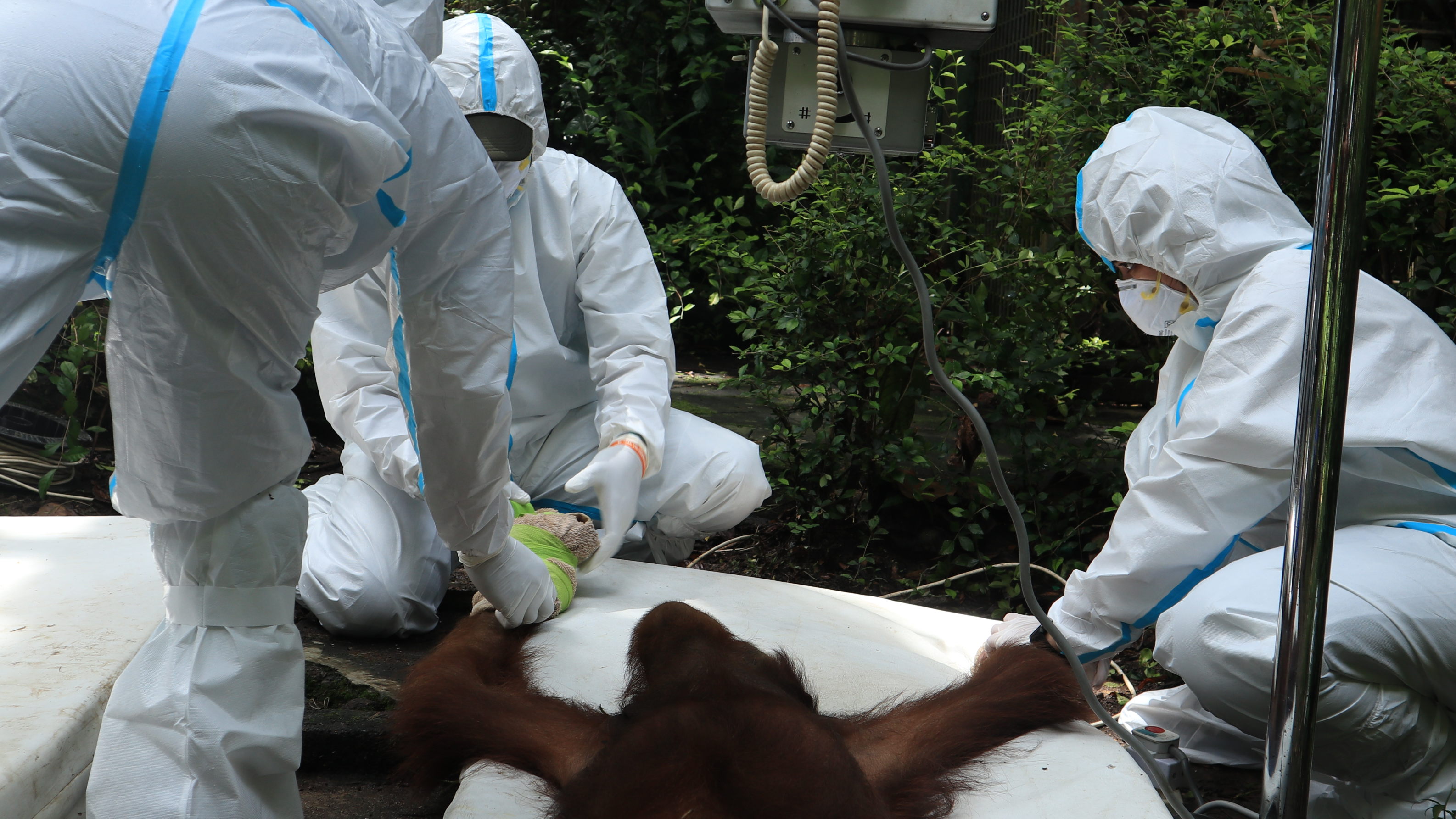
This March, we have a new animal coming from the zoo due to the closure of the zoo due to not having a permit from the local government. WRC Jogja temporarily accommodated an orangutan (Pongo pygmaeus) and a Sun bear (Helarctos malayanus) for a health check before being flown to Kalimantan for further rehabilitation.
This 10-year-old orangutan’s condition is quite worrying because he suffers from stress and malnutrition. We also did some blood sample checks, TB tests, and other tests to determine the condition, as did the sun bear.
The condition of the sun bear is also very sad. He had quite a severe infection of the teeth and gums, leading to sinusitis, due to his four primary canines being cut off intentionally in his previous life. I can’t imagine how long he’s been eating.
To reduce his suffering, with the help of a team from GLZoo Jogja’s team, we extracted one of the canines that had been damaged and infected. The process of removing the infected tooth took approximately two hours. We hope this sun bear does not feel pain anymore. 🐻
During the treatment at our place, the condition of both seemed to be gradually improving. The feed in the form of fruits and enclosures, which are far more appropriate than before, also restores the mentality of the animals.
In mid-March, we and the Jogja Natural Resource Conservation Center (BKSDA) and Center of Orangutan Protection (COP), translocated three Changeable-hawk eagles and one Black-winged kite eagle to the Javan Eagle Wildlife Sanctuary Center in West Java. After our team of doctors conducted a medical examination and was declared healthy, these four eagles will be further rehabilitated and will soon be released into the wild.
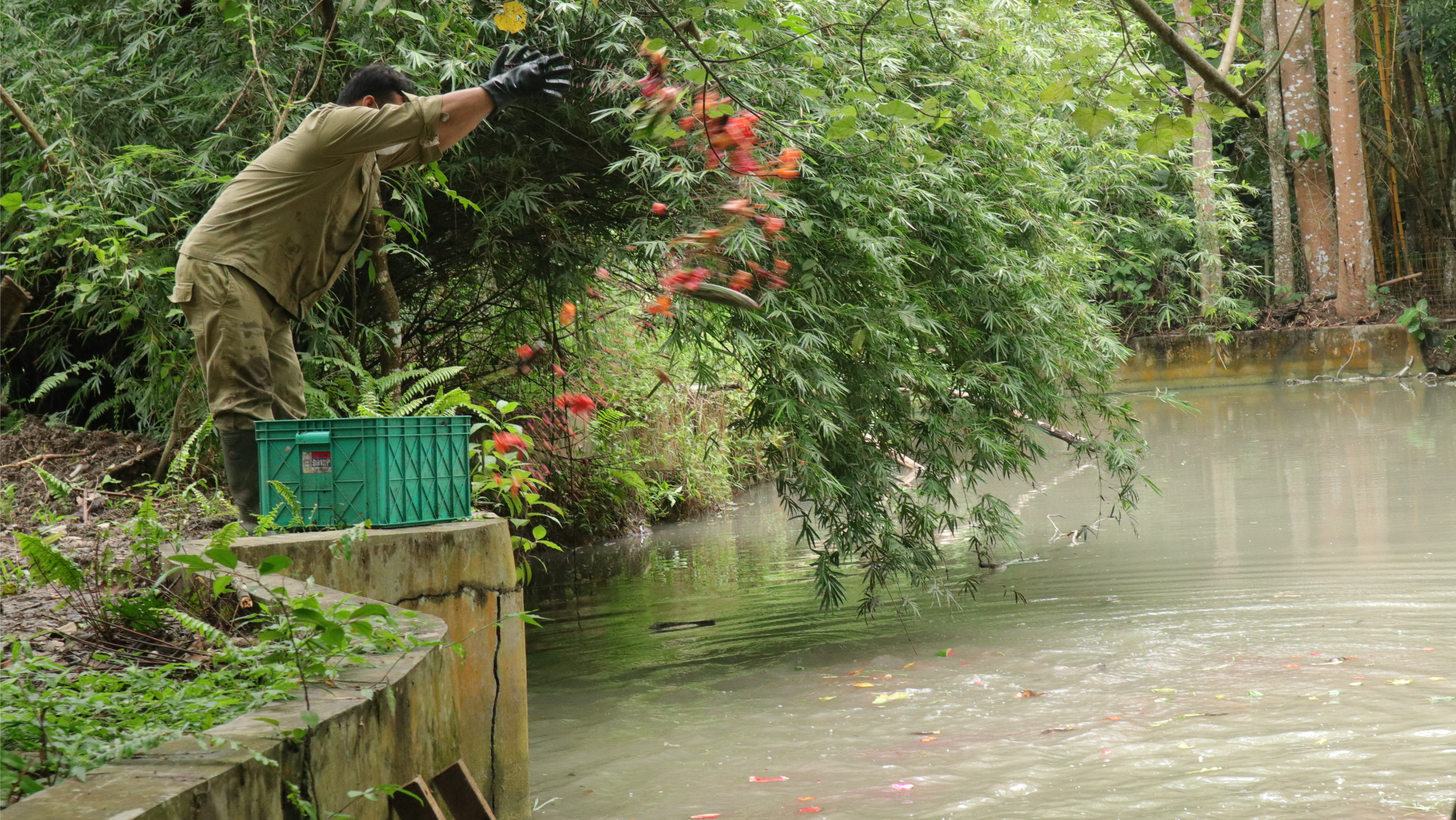
Another project that we are doing is continuing the Malayan giant turtle project. As an introduction, a small pond has been started in the WRC Jogja area. This is done to monitor turtles in the breeding process, which is successfully carried out in larger ponds.
Then, at the end of March, we also received animal care for cases of illegal sales entrusted by the police and the Jogja BKSDA in the form of 14 Javan porcupines of various sizes, from babies to juveniles to brooders. Some of the animals are in fairly good condition, but some have suffered injuries due to entanglement and stress while in the cage. Because it is reported that these animals are being hunted and are still wild, after being observed for several days and declared healthy, they can be immediately returned to their habitat.
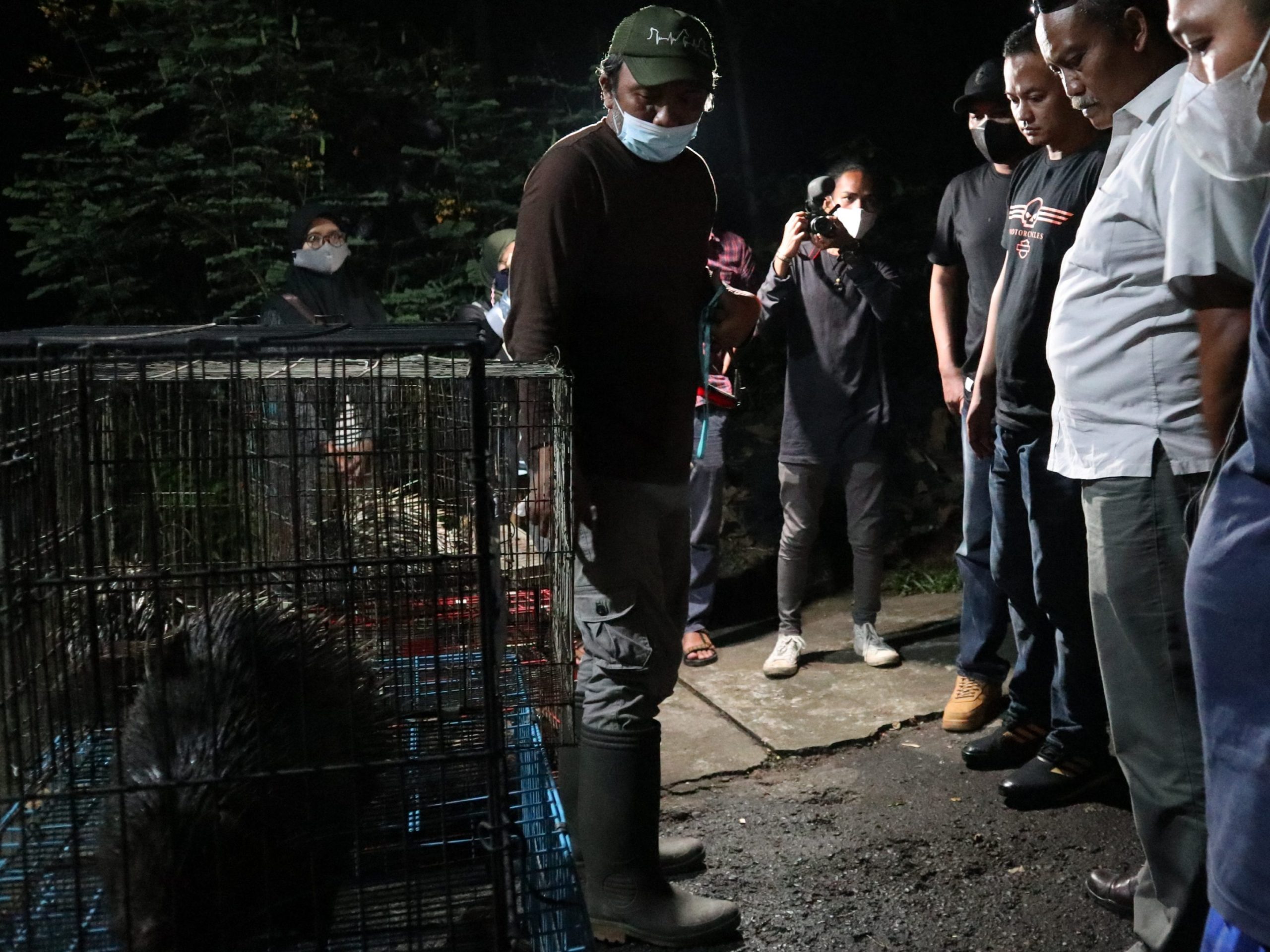
Taking care of animals before they are released back into the wild certainly costs a lot of money. Feed, vitamins, cage cleanliness, and animal welfare are very important to consider. Help us care for protected wildlife by donating through this link.
The rise of illegal trade, if not immediately followed up, will continue to threaten the lives of wild animals in nature. Therefore, do not buy wildlife, because buying it means you are already supporting the illegal wildlife trade. Hopefully, there will be no more illegal ownership of protected animals for the purpose of education by opening a zoo without paying attention to their health and welfare. If that happens, we hope the government will immediately close it and give severe sanctions to the owner.
Let animals live freely in their natural environment.
